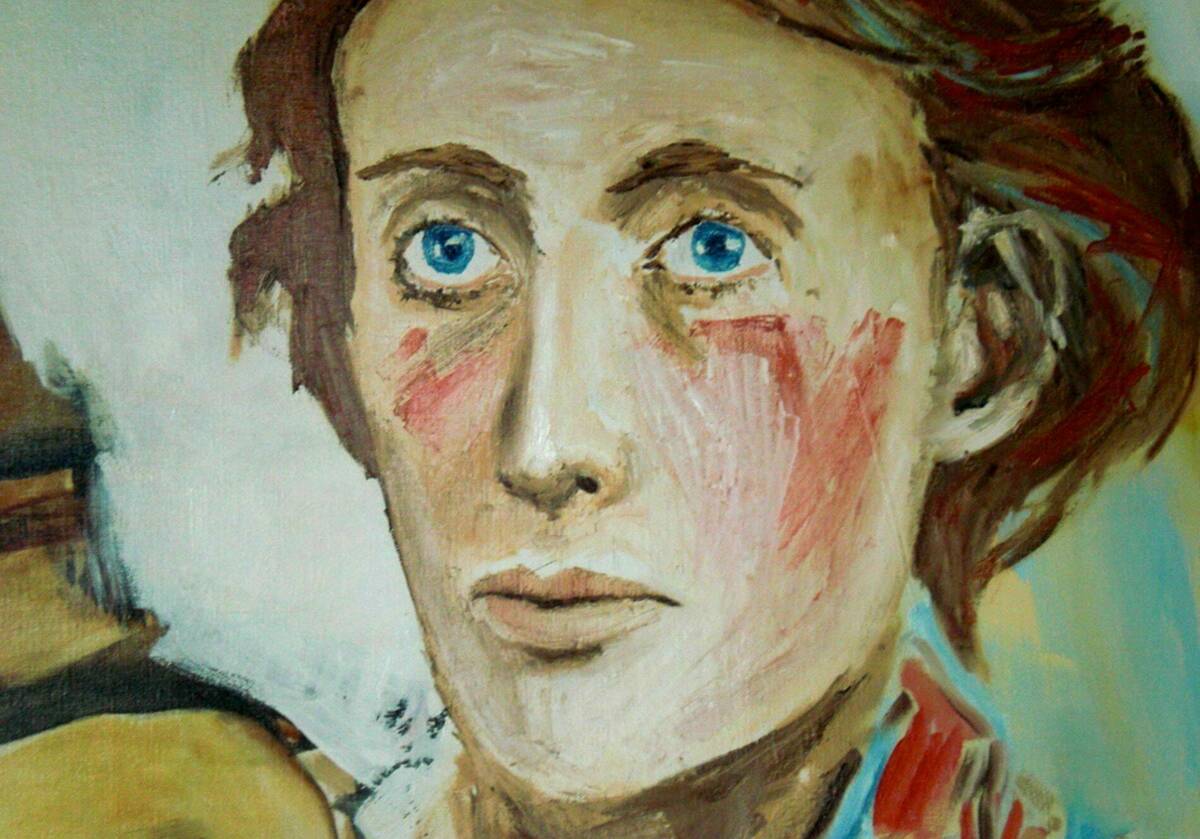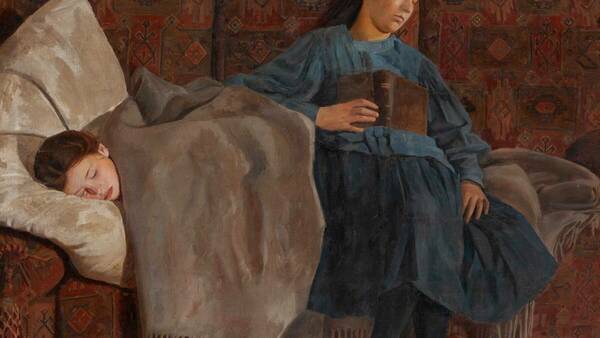In my world, it is common for people to tell stories of being saved or of having gone through terrible experiences and now being beyond them with the message that you too can get out of your troubles. I have often been asked to share about my life and have always declined. Sometimes I think that I have not escaped Dante’s dark wood. And yet, it is a good life.
Does my story of a graced life lived under constant temptation to suicide fit into these contexts? I am not willing to share this and am not sure how it would be received. I am not particularly concerned about wearing the mask others see. But I think that some would benefit from knowing this story, or so my wife tells me.
The son of a pastor, I have been a Christian my entire life. I have taken this calling seriously and tried to live up to it. My father was influential in our church and had a reputation, nationwide, for holiness. He is known for his ministry and the lives he transformed. Having entered the world of church ministry, I was reminded of the grace he brought to so many lives. What is not known is the darkness that he kept within the walls of his house. I suppose one never knows what goes on in another family.
But my focus here is on myself and I hope my story will be helpful to those struggling to live the Christian life and who know that certain problems will not leave them alone in this life.
I and all of my siblings in a large family have been hospitalized for suicide attempts. After two stints in the psych ward, I was diagnosed as bipolar a few years ago. I would like to share with you my experience of bipolarity as a Christian.
Many young people struggle with chastity. I barely did, or I did and did not succumb. I approached my marriage with longing but was chaste. On our wedding night, there were signs that my wife did not want to marry me, but I was naive and inexperienced, and over time attributed her struggles to mental illness. Surely she wanted to be married to me, it was just something in her past, or something chemical, this, that, or the other thing that kept the marriage cold.
We were odd in that we did not have children but we avoided discussion of it as I progressed in my studies and ministry. We moved often for various positions and fellowships. By some miracle, our son was born after six years of marriage. A few years later, I saw hints of the deep problem in our marriage but this would only become clear later.
One Easter Sunday, my wife told me that she had never been attracted to me, that she never wanted to be married, and that it was only family pressure that led her to be so. We went to marriage counseling and it became clear that our marriage could not be salvaged. She left and I went on a tailspin: drinking, drugs, and other things that I had never fallen into and thought pushed me away from God.
There were rumors in my congregation and my father learned about my lifestyle from one of my siblings. He, my best friend and hero, told me he would not speak to me again. We had nothing to talk about since we had different first principles. I was a wreck and still today struggle to forgive him for this, years after his death.
At the time, I was given antidepressants for what seemed to be the problem. This raised my mania to extremes. I was able to work hard during the days and live riotously with new, dangerous friends at night.
At one point I could not stop thinking about killing myself. I was desperately unhappy and not able to do anything about it. I was hospitalized for three weeks. Nothing changed, no new diagnoses. I came back home and threw myself into work and the same lifestyle. I neglected my young son. I canceled meetings in the midst of a business trip and went to a psych ward again, this time in Minneapolis.
Rumors took flight and I was asked to leave the ministry. I started on a new career. Now single, I began attending Catholic Masses. I could not sit still. My legs would shake during Mass as I wanted to get out of there. Was I terrified or fascinated by God? I am not sure. I wanted to either work or go to the bars.
As I grew in my Catholic faith, I was able to pull away from the late nights out but retained some of the vices. I fell in love, but my previous marriage had not been annulled and I did not know what to do. The annulment came through, we quickly married, and I was diagnosed as bipolar. Children came swiftly after that.
My ex-wife then decided to move a thousand miles away. She used my hospitalizations to prove that I was unfit, and I lost my son. But, finally, grace came, or perhaps I should say happiness came as I think my struggles were graced as well.
I gained the grace of being loved in marriage and the large family that I always wanted. I learned to take care of myself and was given the tools by my therapist to do so. Although the medication changed my body, I gained stability. Both of these things are hidden from my acquaintances who, conservative Catholics like myself, tend to frown on therapy and medication.
I now consider myself a very happy man. My family is patient with me and my wife loves me. I find great satisfaction in my career and am sustained by the Eucharist. And yet, every hour or so I am tempted by thoughts of doing something career or life-ending.
I have learned from the Orthodox Philokalia as well as Catholic tradition that these logismoi or suggestions do not proceed from Freud’s id. For most of my life, I have thought that these suggestions are who I truly am. They are my deep desires. As a Christian, then, I struggled to see myself as good, as a son whom the Father loves. My reading in the Christian tradition as well as a retreat I attended have freed me from this idea of the id. These thoughts are not me. They are suggestions of the Evil One.
And yet, great graces come from, not just alongside, my mania and depression. My bipolarity does not blind me to reality, as so many think, but rather allows me to look deeper into reality. The danger is that this piercing vision needs to be expanded. My bipolarity can lead to what Newman thought of heresy—a deeper insight into the truth, but one that loses sight of the whole.
The modern Catholic spiritual writers whom I trust agree that sanctity is proven by our steadfastness in the midst of suffering. If this is true, then I failed during the years my life fell apart. And yet I do not despair of my growth in theosis or becoming a sharer in the divine nature. The desert fathers are clear: it is not by our integrity that we are saved but by humility and repentance.
Some might worry that this can be an excuse for laziness. I suppose I think that in the end there is truth in both positions. I wish I had remained faithful to my baptism during those trying years. I never lost my faith but my “twisted love attempted to make the crooked way seem straight” (Purgatorio 10.2–3).
Where am I now? I have some peace because of the wisdom of the Philokalia and a beautiful marriage. The logismoi are always with me but I am not afraid of them as I once was. Few know that I am bipolar; even fewer know the effect it has on my life. Perhaps I am no longer in the dark wood as I suggested earlier, but like a monk in the desert, constantly wrestling the demons.
And yet I am not a solitary spiritual athlete, I am supported by a wife who is more than I ever thought possible, wonderful children, and a career and friendships. My bipolarity allows me to see both how fragile and beautiful these gifts are. I thank God for making me bipolar and hope that my children, who are likely to suffer from this as well, can learn to do the same.
EDITORIAL NOTE: Join the McGrath Institute for Church Life, the Martin Center for Integration, and Cor Sacrum Counseling and Consulting for a discussion on youth mental health.
Youth Mental Health: Belonging and Hope in an Age of Loneliness
Join us Wednesday, November 8 at 12:30 p.m. EDT for a conversation with:
- Ryan Dainty – Dean of Student Formation, Marian High School
- Pat and Kenna Millea – Martin Center for Integration
- Maribel Rodriguez Laguna – Licensed Professional Counselor

